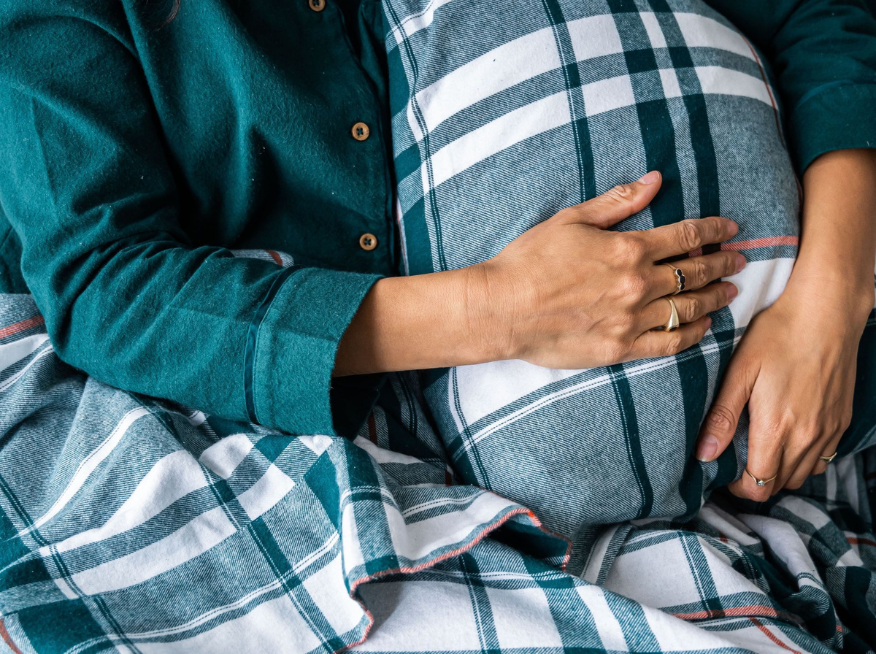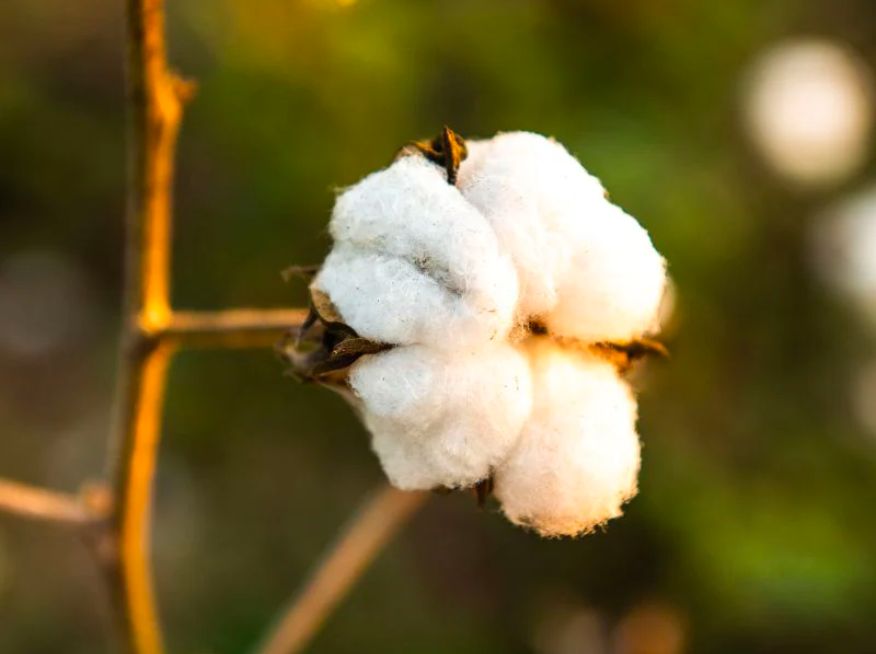


By Vinita Baravkar
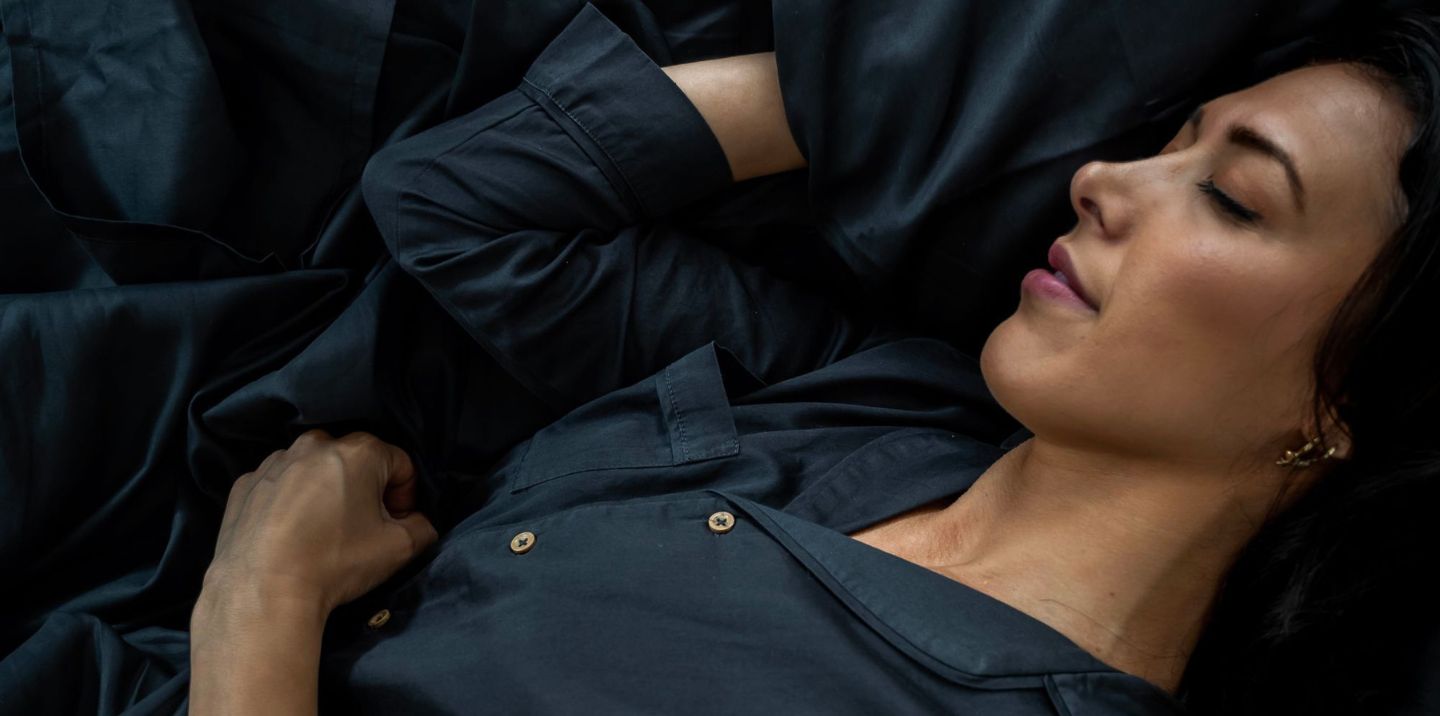
We all value our sleep.
Studies show that quality zzz’s make your brain sharper, your heart healthier, boosts your mood and helps in weight loss.
Dr Neil Stanley, a sleep expert and the author of How to Sleep Well: The Science of Sleeping Smarter, Living Better and Being Productive, says: "Sleep is the most important repair and restore tool we have."
But with sleeping problems on the rise, not having a good night's sleep can lead to several health issues.
If you're finding it difficult to drift away to dreamland, there may be several reasons behind this.
One often overlooked cause is that you’re not wearing the right pyjamas to bed.
In the same way that our bedding affects our sleep quality, what we wear to sleep also has an effect on how well we rest during the night.
One of the most essential sleepwear in this department is a set of good PJs.
Pyjamas have been used for a long time (since the 17th century), and for good reason — they come with a host of benefits that lead to better sleep quality.
But the kinds of pyjamas you wear are important to maximise comfort, and one type will not fit all (especially given changes in seasons and people’s different sensitivities).
In this article, you’ll learn about why you should sleep in pyjamas, as well as which ones are the best for you.
Let's jump right in.
Sleeping in pyjamas has many advantages.
From warmth and comfort to good hygiene, below are five reasons why your PJs are your best friend in bed.
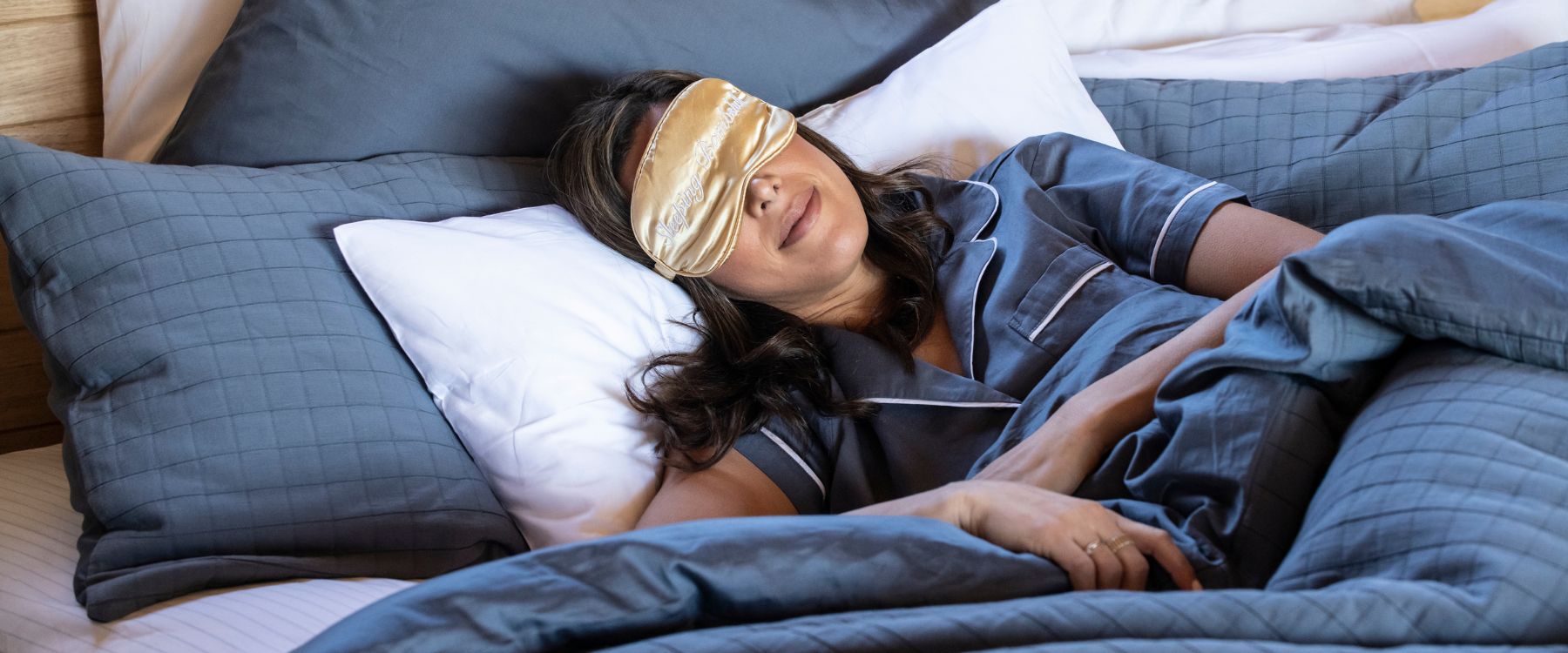
The moment you put on your PJs or your nightwear, it sends a signal to your brain that it's time to get some rest. For some reason (hello science), your sleep mode gets activated.
It's the same feeling you get when you wear your office attire and feel ready for work.
Your mind gets conditioned into the activity easily when you're wearing the right uniform. In this case, pyjamas are your sleep uniform. Your brain associates them with rest and relaxation. Hence, wearing pyjamas helps the brain signal your entire system to switch off and get ready for bed.
The opposite of this has some serious downsides.
When our brains just can't find that OFF switch, sleep issues arise. Your sleep quality gets affected, and you might wake up in the morning not feeling rested at all.
Worse, you might feel sleep-deprived and lethargic throughout the day (yikes!)
Wearing the right pyjamas can be a simple fix for this.
Making pyjamas a part of your night time routine can help boost your sleep quality and duration, too. When you wake up in the morning, you look good, feel comfortable, and most importantly, feel relaxed and recharged.
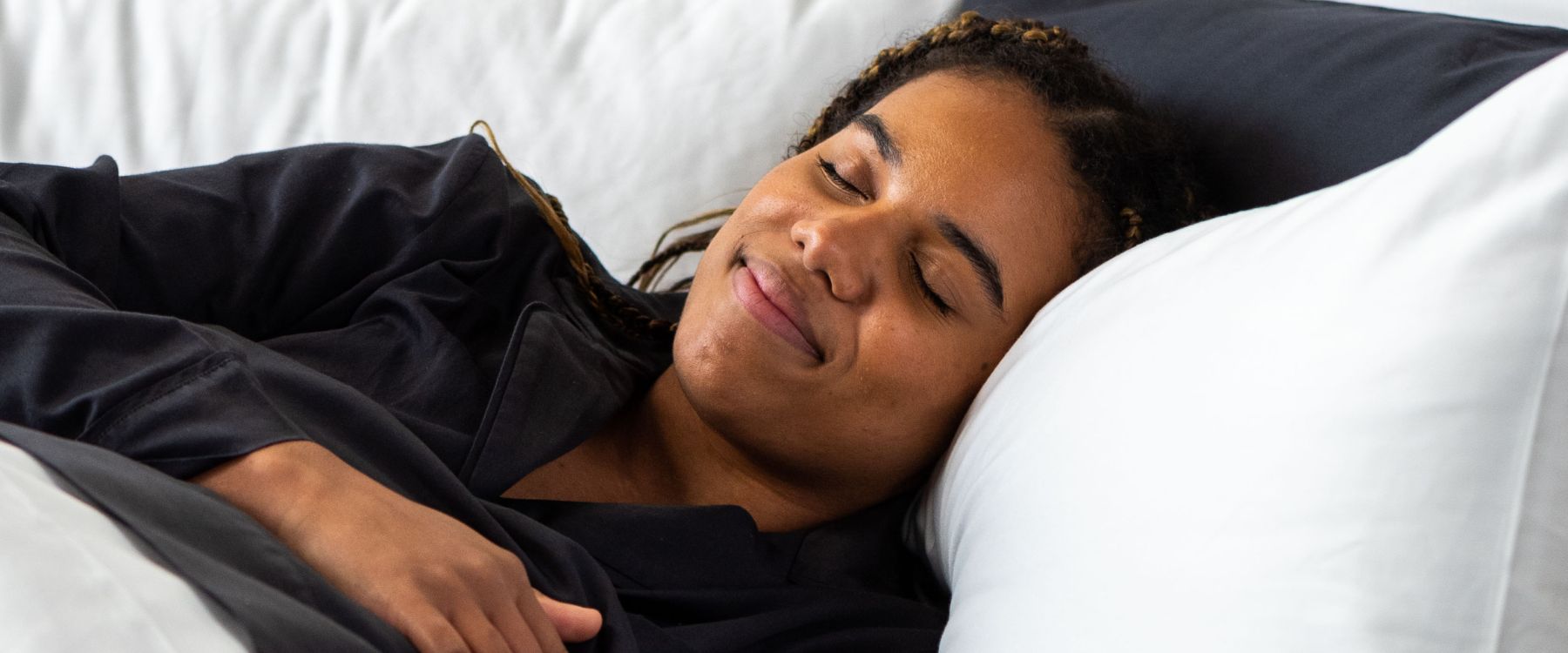
One of the things that affects your sleep quality is temperature. Regulating and maintaining an optimal body temperature all night long is so essential for a good night's sleep.
And pyjamas made with good quality fabrics do exactly that.
Sleeping in your pyjamas helps your body maintain a steady temperature throughout the night. If the pyjama fabric is breathable and moisture-wicking, it will absorb sweat, keeping you cool and dry.
Studies show that around 40% of people believe feeling too warm or too cold is what prevents them from having a good night's sleep.
If your body feels too warm during sleep, and can't release that heat fast enough, that's when you start sweating. By the way, this is totally normal. An average person sweats one cup every night.
However, wearing or sleeping on the wrong materials can make the situation worse. It can lead to uncomfortable wetness on our skin, irritation, rashes and poor hygiene in general.
A good set of sleepwear ensures your body temperature is optimal for slipping into a deep, peaceful slumber.
For lower temperatures, pyjamas made with fabrics like organic cotton, organic hemp, and flannelette help trap heat inside, keeping you warm and cosy while you get your beauty sleep.
Cotton and wool have the ability to absorb as well as transfer large amounts of moisture. These natural fabrics are the best choices for nightwear. However, with wool there arises the issue of animal cruelty and unsustainable production practices. In this regard, organic cotton is a much more sustainable and cruelty-free natural fabric.
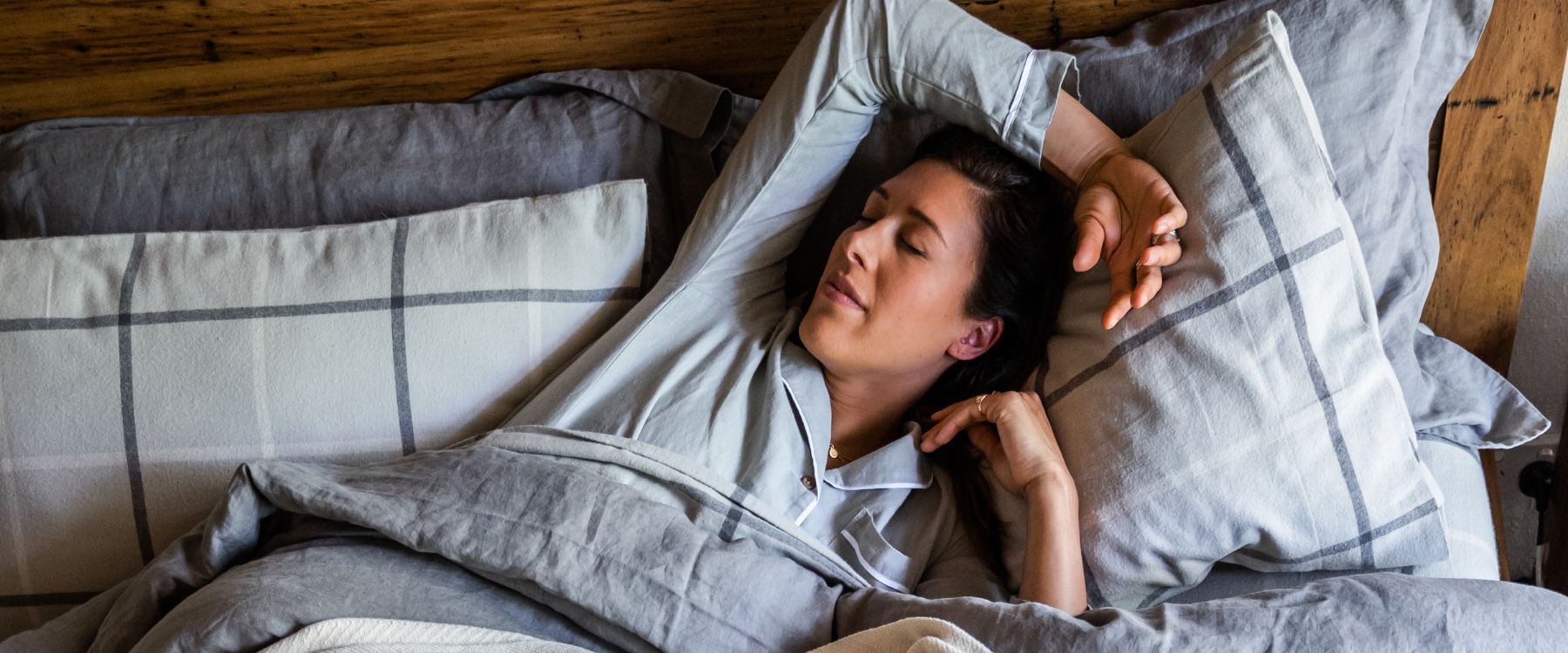
Pyjamas are the symbol of comfort.
Make sure that the pyjamas you sleep in are made of good-quality fabrics. They should be soft, breathable, and most importantly, comfortable between your sheets. Keep in mind that your pyjamas directly affect the quality of your sleep.
Sure, wearing a good pair of pyjamas allows you to unwind and stay comfortable in your home.
But it also works its charm once you go outdoors. Whether you have to take out the trash, pick up the mail, or receive deliveries at your doorstep, you can do it all in your jammies while still looking pretty decent.
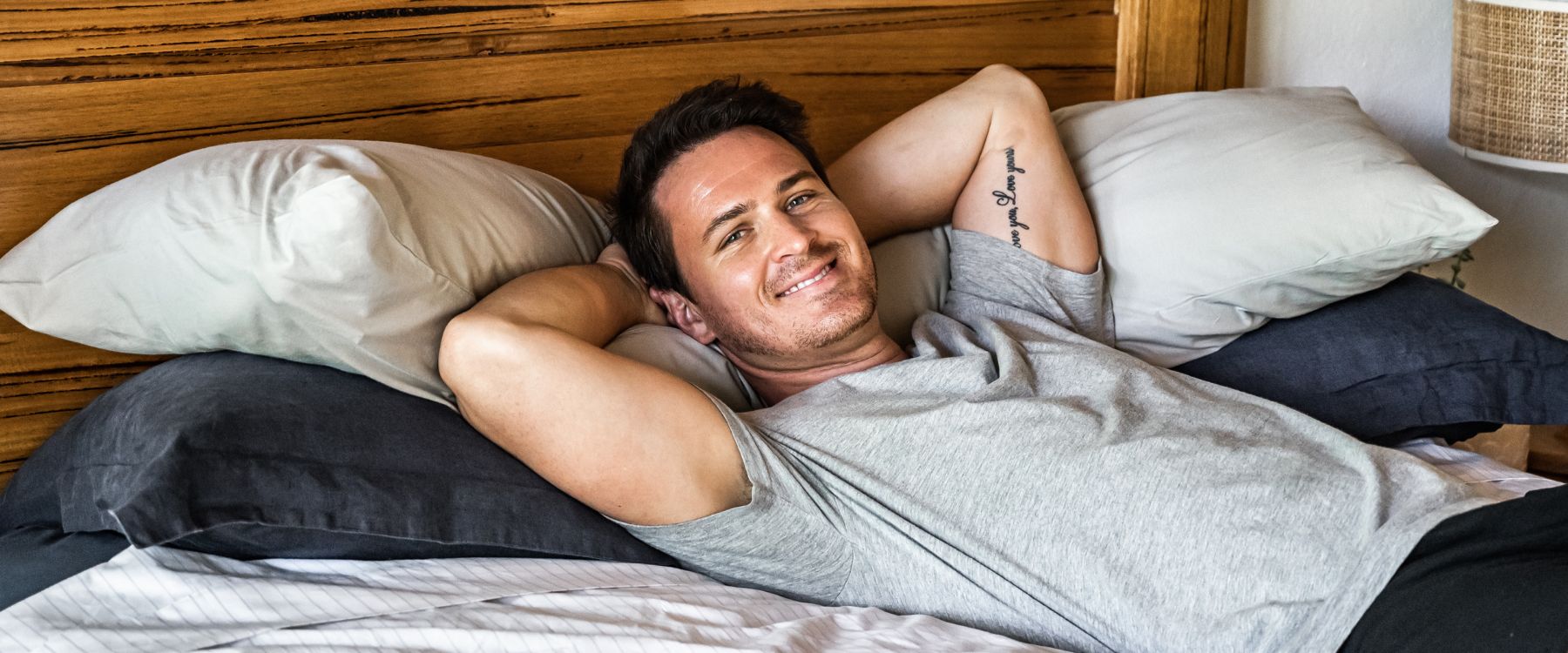
If you're someone who's always tossing and turning in bed (or maybe it's your partner), a good set of PJs can be your sleep companion.
Wearing loosely-fit pyjamas made with a soft, comfortable fabric allows you to move easily in your sleep. Why does it matter?
Having the freedom to move with ease enhances your quality of sleep, which in turn, gives you a good night’s sleep.
The right pair of PJs allow you a wide range of motion.
On the other hand, constricting sleepwear feels uncomfortable and irritating, which leads to disturbed sleep.
Sleepwear like organic cotton pyjamas is especially wonderful for sleeping comfortably as they offer unhindered movement and little room for pinching and pulling.
Word of caution: If your sleepwear comes with tags, zippers or too many buttons, make sure they don't hinder your sleep as they can start to irritate your skin or cause itchiness.
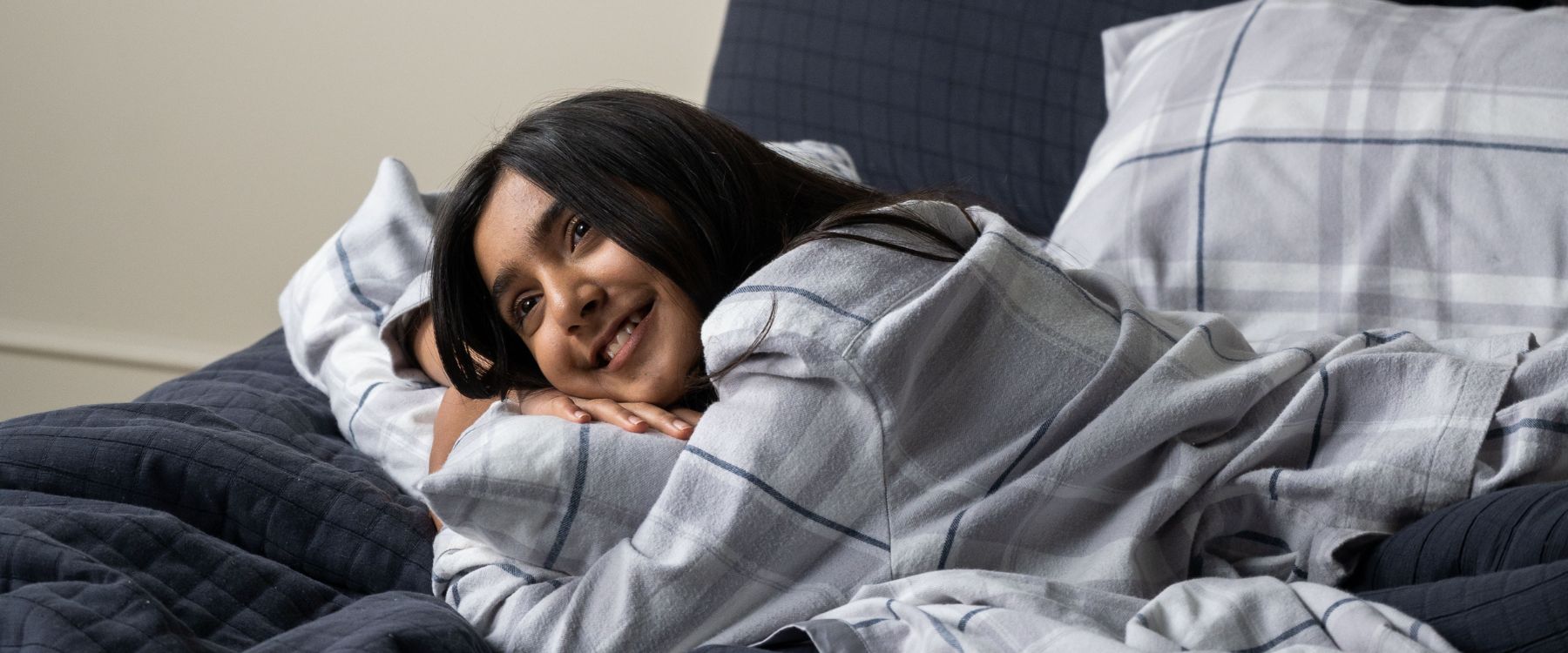
Here's a fun fact: Your skin is continuously shedding dead cells and renewing itself. This process happens more intensely at night when you are fast asleep.
While these dead skin cells and bacteria might not be harmful, they can cause problems once in the wrong place.
By wearing your pyjamas to bed, you prevent the unnecessary spreading of bacteria on your sheets. Your PJs act as a barrier between your body and bed sheets. This way, most of the dead skin and bacteria will end up in your attire and not on your expensive bed sheets.
This also means you need to wash your pyjamas properly and regularly to keep them clean and disinfected.
According to Medical Daily, not washing our pyjamas regularly might lead to health issues like cystitis, MRSA, and skin infections.
Pro tip: Avoid sleeping in your bras and undies. Yes ladies, that includes lingerie. While our undergarments are great support when we're stepping out into the world, they're not ideal when you want a comfortable, restful sleep. Sleeping in your underwear not only causes pinching and pulling, but it also builds up moisture, bacteria and causes irritation. So feel free to go commando beneath your PJs (nobody's looking).
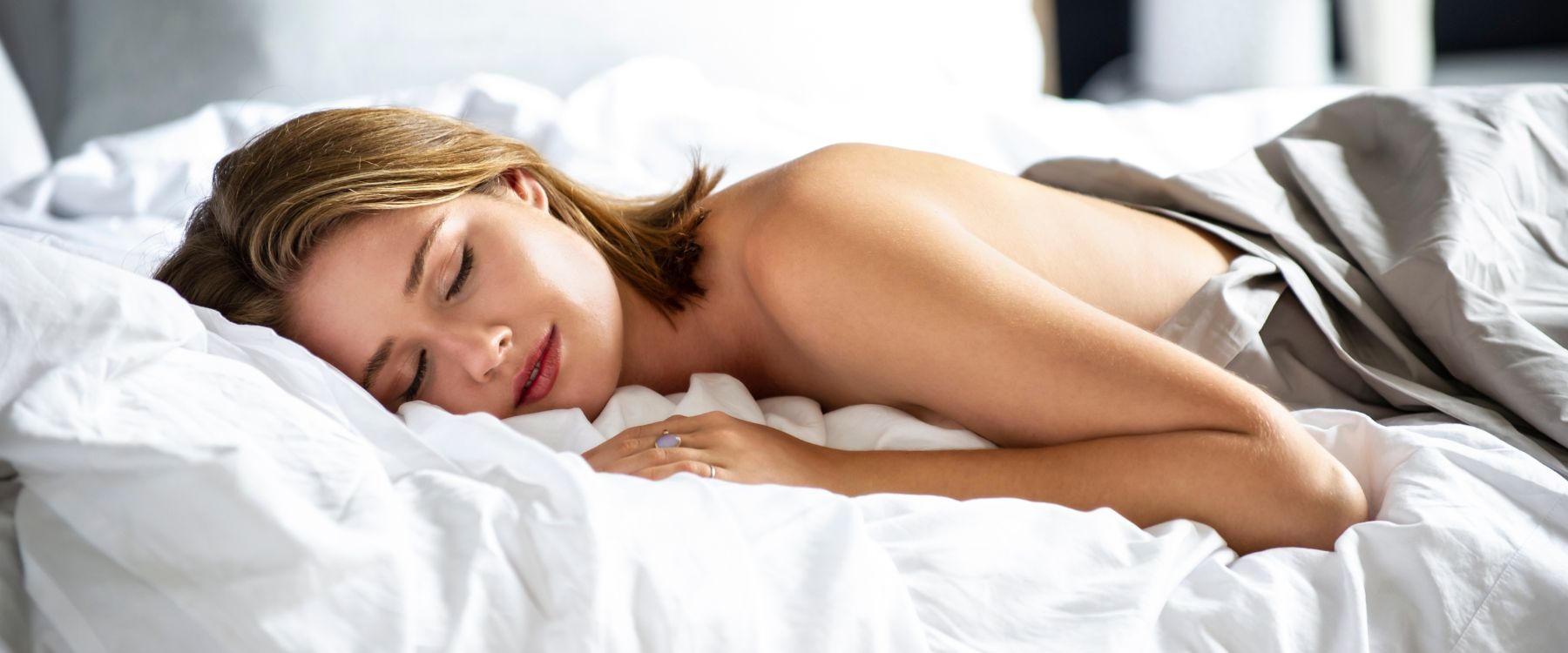
Around a fifth of people sleep naked.
Sure, sleeping naked has its own benefits.
On warmer nights, it is great for regulating body temperature and keeping you cool.
But for those of us who prefer to be a little more covered, pyjamas are key.
Here are a few reasons why we'd recommend not to sleep naked:
When you're sleeping, it's important to stay prepared for any emergency, big or small.
Emergencies could include a sudden break-in, your house catching on fire, your child crying, the neighbours knocking on the door or even natural disasters like an earthquake. Getting dressed or throwing on a robe on such occasions when every second counts can be an added step.
No matter the level of danger, it's important to be prepared for the worst. Some emergencies might require you to escape your home immediately, which isn't exactly the best option when you're stark naked.
Let's face it. Sleeping nude is much less appealing during winter. When the temperature drops and nights get chilly, it can get difficult to stay warm and cosy without having any clothes on.
In such weather, layers come to the rescue. This is why pyjamas are the perfect sleepwear for you if you sleep in a cold environment or feel cold at night.
And if you're someone who has difficulty staying warm and falling asleep, then you're much better off sleeping with your nightgown and PJs on rather than going commando.
When you sleep with your pyjamas on, it soaks up a lot of sweat, skin cells, dirt, and oil released from your body as you sleep. Your PJs act as a protective barrier between your bedding and your body.
However, when sleeping naked, you cannot afford this luxury.
As there’s nothing between your body and the bedding, all of that sweat and oils from your skin end up on your sheets and mattress. This might not be a problem if you wash your sheets regularly.
But if you don't wash your sheets every day (which let's be honest, most of us don't) it could lead to rather dirty sheets and mattress. This might cause body acne, rashes, skin irritation and other hygiene issues. Plus, it doesn't make a good impression when you have someone sleeping in the same bed as you.
Clothes make us feel safe, covered and protected. During sleep, our body switches off its flight-or-fight mode (aka survival mode). This is when feeling a sense of protection becomes even more important for us to safely drift off to slumberland.
Sleeping nude means that there is nothing protecting your body from external elements. This exposes all the vital and private parts of your body, which can be susceptible to ticks and insect bites.
Now that you're familiar with all the incredible benefits of wearing pyjamas, it's time to select a good pair.
The truth is, finding one that suits your needs can be overwhelming.
There are a lot of factors to consider.
Ideally, you want something comfortable, functional yet luxurious.
So if you're on a shopping spree for the right pair, we've listed down a few factors to help you make the purchase.
The fabric of your pyjamas has a huge impact on the quality of your sleep as it directly affects your body temperature.
The best fabric for your body depends on whether you feel warm or cool during the night, have a tendency to sweat, your sleep environment, and the season and climate you live in.
Look for sleepwear that has moisture-wicking and cooling properties.
Natural fabrics like organic cotton, wool and organic flannelette are soft, breathable and can absorb sweat easily. Organic cotton helps to regulate body temperature by keeping you feeling warm during winter and cool during summer.
Pro Tip: You don't want pyjamas that are too tight, too warm, or in a material that's not breathable. These factors can bring discomfort and disrupt your sleep.
The best kind of pyjamas are relaxed and comfy — exactly how you should feel when you’re wearing them. For this, the pyjamas should not be too loose, not too tight.
Too big and you lose the benefits of the warmth and comfort the fabric has to offer.
Too tight and you feel uncomfortable when the fabric sticks to your skin.
When shopping for pyjamas, make sure to check the size guide carefully for the best fit. Remember, a relaxed fit with enough room for your vital areas to breathe is what you want to go for.
The style of pyjamas you wear is a personal preference. You can experiment with and try out different styles, patterns and colours based on your personality and mood. From soft, neutral shades like white, and beige to floral prints and blocked boho patterns, these days there’s a whole world of styles and designs to pick from.
However, as a standard, go for fabrics that are soft, breathable and non-irritating to your skin.
Just like good quality bedding, quality sleepwear is an investment you should be able to cherish for a long time.
It’s crucial to invest in quality sleepwear that can last you for a few years without wearing out and fading.
Only pyjamas made of good quality, durable fabric fit this bill. Organic cotton and flannelette are both fabrics known for their durability.
This is also a much more sustainable option than changing your pyjamas every few years (or even months). It makes us mindful of our consumption and limits it to just the essentials.
Hence, buying a good set of pyjamas is an important decision — you should take your time with it and choose your sleepwear wisely.
Organic Cotton: Soft, breathable fabric. Ideal for warmer temperatures. Organic cotton sleepwear is perfect for kids as the fabric is soft, durable and stretchy, allowing easy movement.
Silk: Soft and strong, they are well-insulated which makes them warm, breathable, and effective in preventing overheating. However, keep in mind that silk is made from boiling live silkworms and involves a good deal of animal cruelty.
Hence it's not an ethical option, compared to organic cotton and other eco-friendly fabrics.
Flannelette: These pyjamas are an excellent option for colder climates and cold nights. The soft, thick fabric provides oodles of warmth and comfort. Also a good pick for lounging around your home.
Read more: What is Flannelette? (Hint: It's Not Exactly Flannel)
Apart from finding out the fabrics and fit of your new PJs, there's one more thing that's worth looking into — are your pyjamas eco-friendly and made sustainably?
Fortunately, sustainable sleepwear brands like Bhumi are making it easy to find ethical PJs for a sweet, eco-conscious slumber.
Crafted with 100% GOTS-certified organic cotton made in Fairtrade factories in India, Bhumi's pyjamas are a classic example of sustainable sleepwear so that you can sleep peacefully knowing you're doing good for people, the planet and the environment.
Once you’ve decided to purchase pyjamas, the next step becomes finding where to buy them from.
Bhumi has a selection for men, women, and children. Made from 100% Fairtrade organically farmed cotton, free from toxic chemical sprays and genetically modified seeds, Bhumi's ethical pyjamas are functional, chic and luxurious (did we say eco-friendly?)
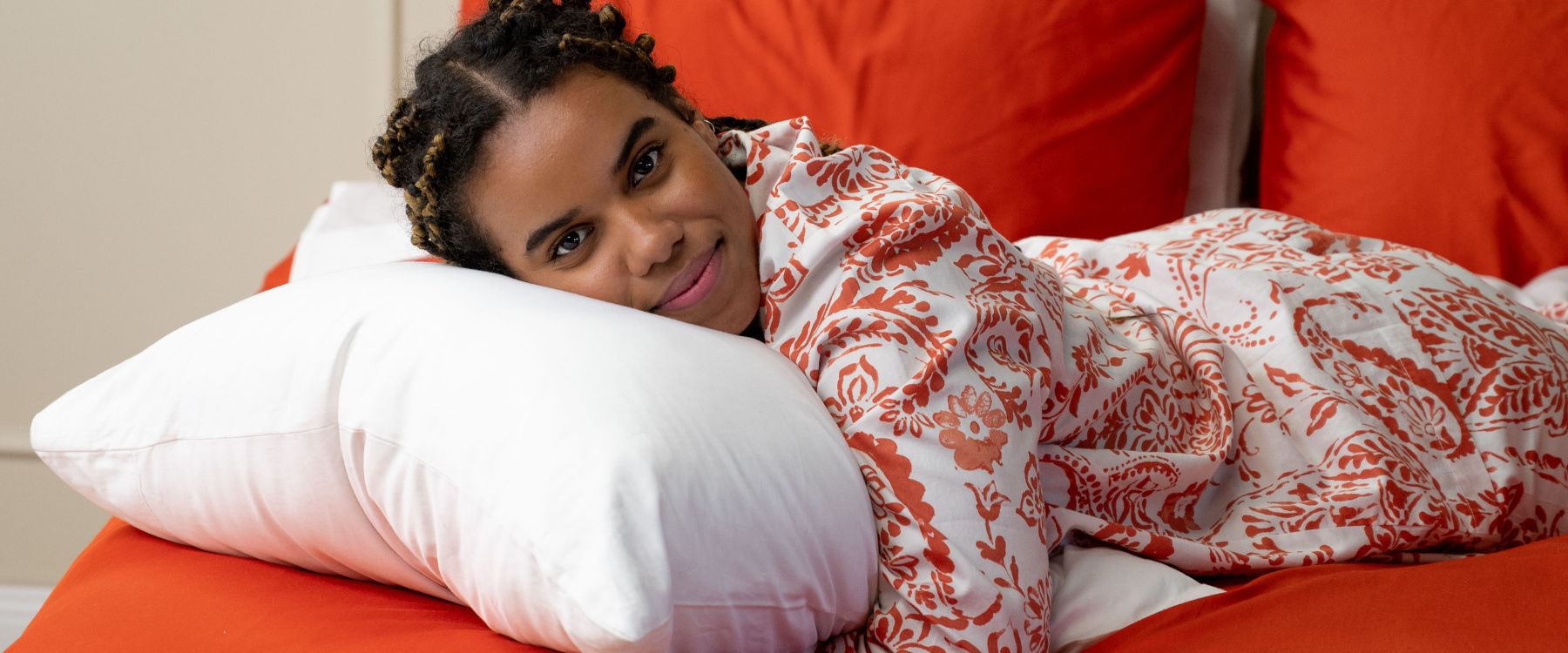
Sleep amongst a bed of flowers in these beautiful hand-painted floral pattern PJs that bring an immediate sense of calm with their unique watercolour effect.
Made with only the finest long-staple 100% Fairtrade organic cotton for the best night's sleep.
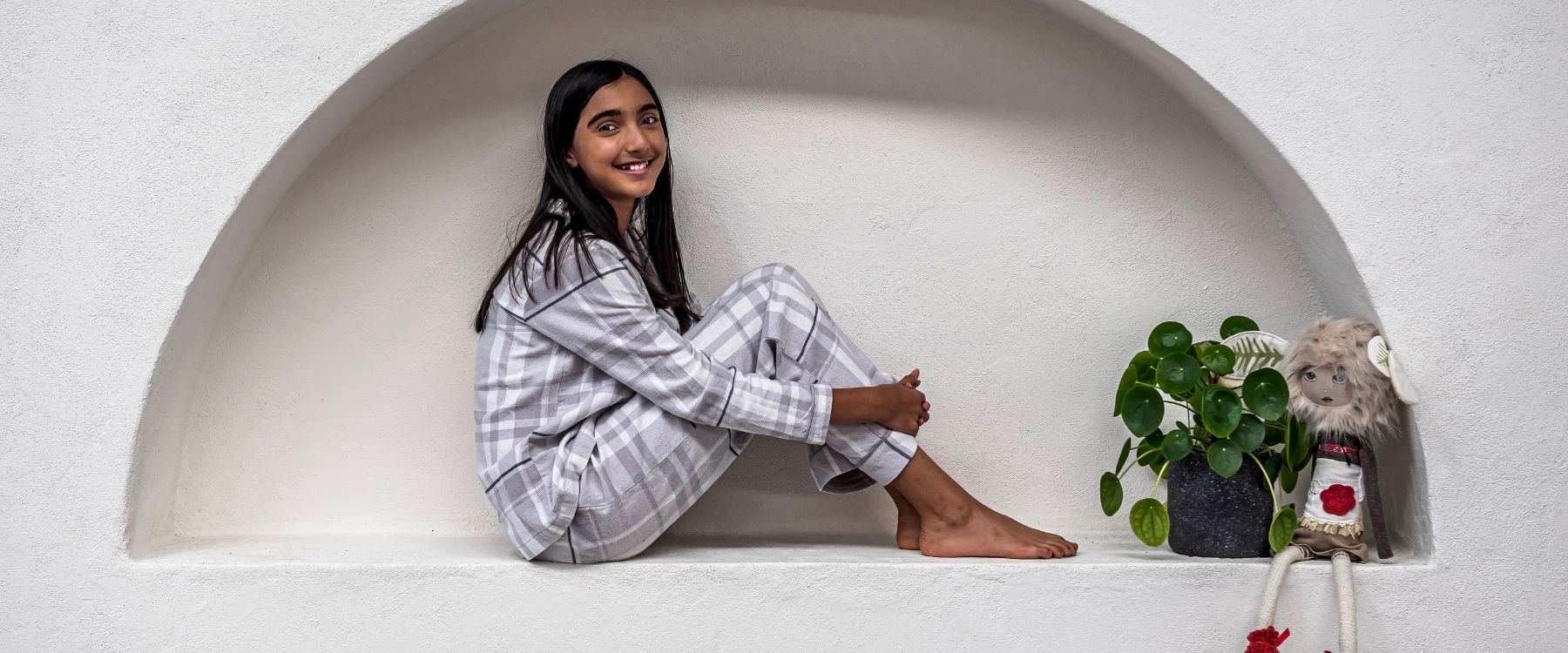
These thick, luxurious organic flannelette PJs are in a class of their own with the perfect delicious velvet texture that's more than just soft. Cosy comfort for your little dreamer.
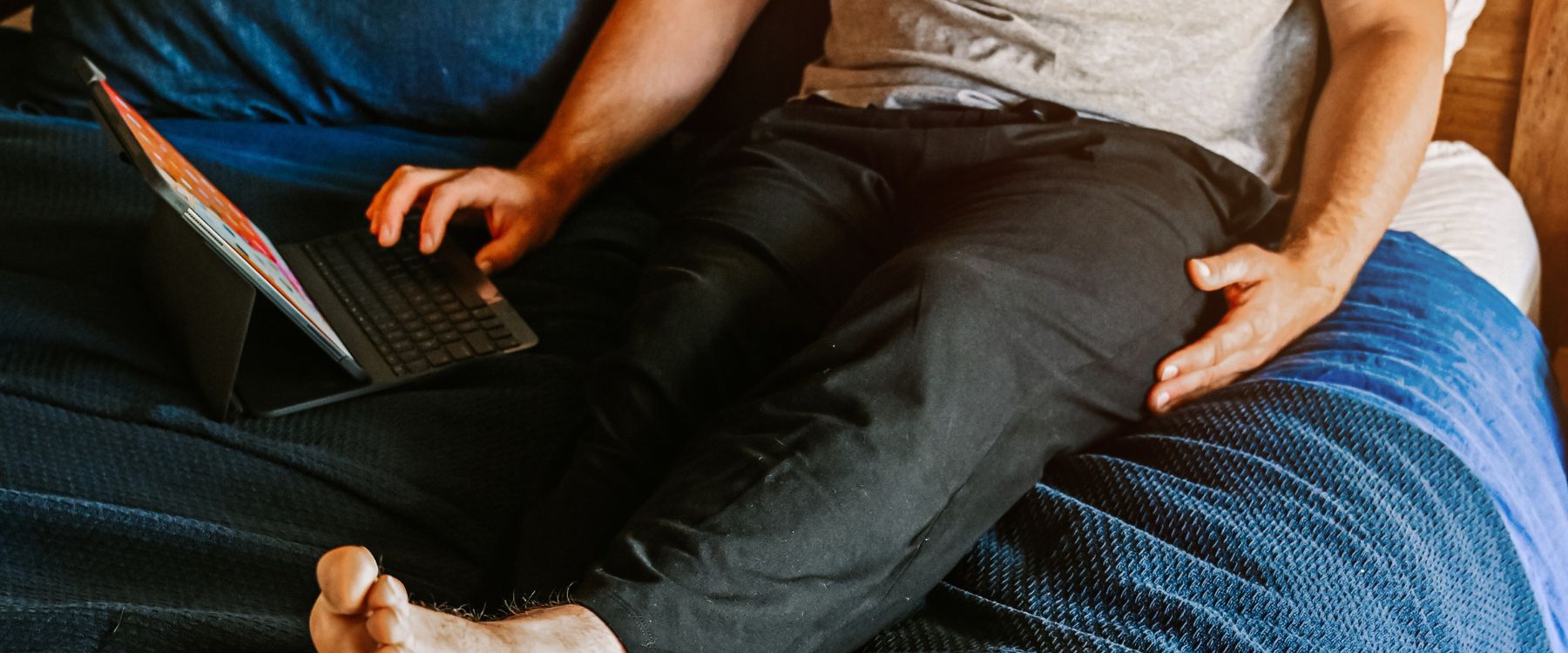
These super comfy drawstring waistband full-length pants are designed to be roomy and loose around the crotch for extra breathability and comfort. Good news: It comes with a side and back pocket.
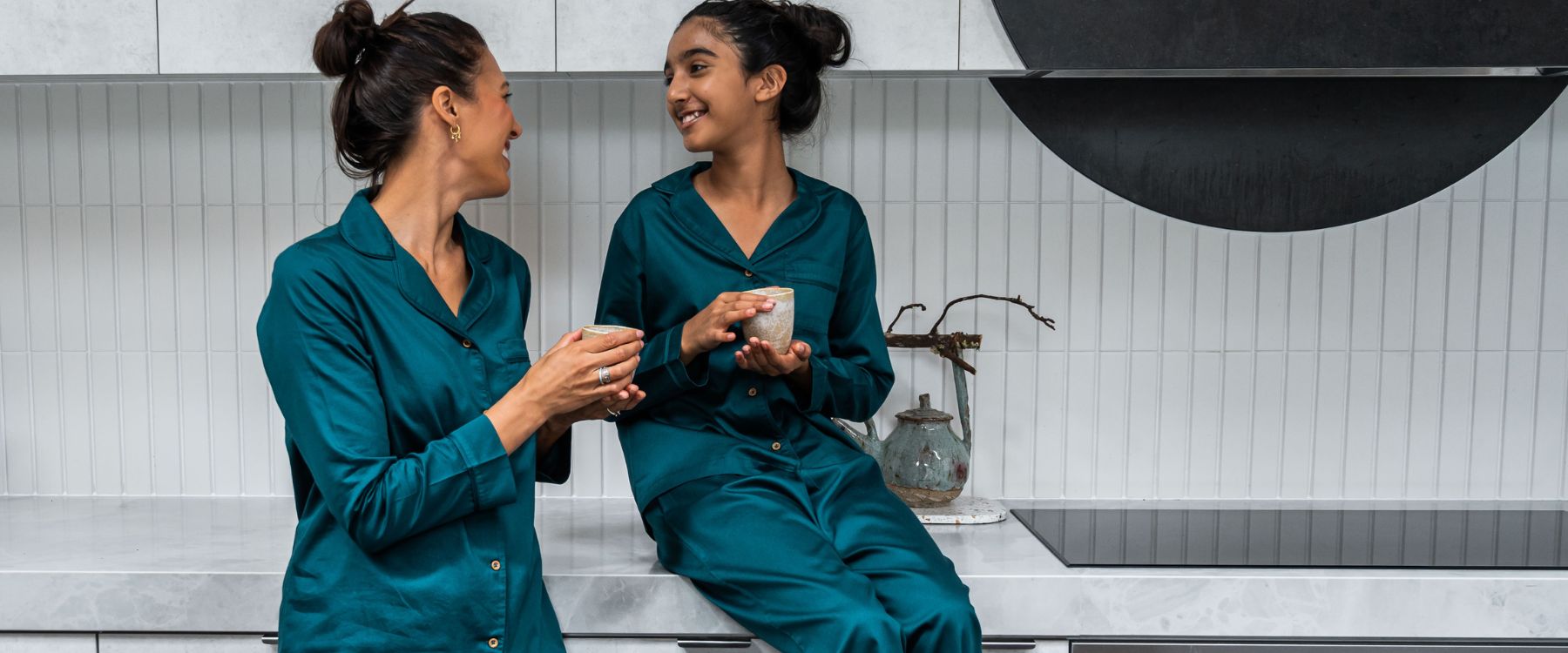
Slip into these soft and comfy pyjama sets. Elegantly designed and made from Bhumi's signature soft Sateen, this PJ set provides a soothing effect on your skin.
Good sleep is important for having the energy to do the activities that we love. And wearing the right pyjamas is a step towards it.
By giving good quality fabrics a go, you’re saying yes to getting better sleep.
You can also pair your pyjamas with some matching socks and sleep masks.
Aside from buying quality sleepwear, you can practice other bedtime rituals such as rubbing essential oils like lavender, burning scented candles, playing relaxing music or getting a good message — all of which encourage a peaceful night’s rest.

RELATED ARTICLES
